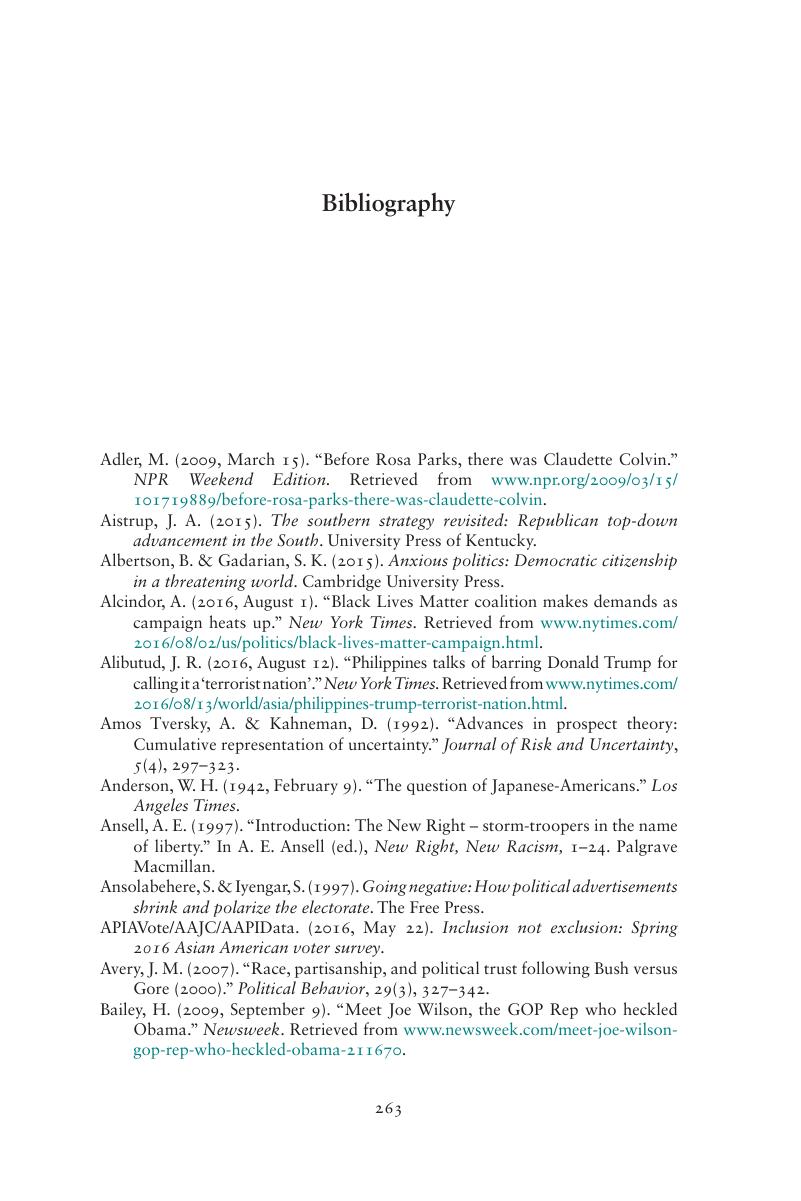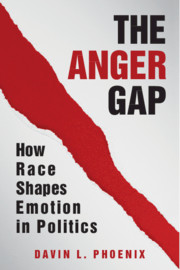Book contents
- The Anger Gap
- The Anger Gap
- Copyright page
- Dedication
- Contents
- Figures
- Tables
- Preface
- 1 Anger in Black and White
- 2 Anger (Mis)Management?
- 3 The Anger Gap and Turnout in American Politics
- 4 From Black Anger to Black Activism
- 5 The Racial Enthusiasm Advantage in Politics
- 6 The Anger Gap, beyond Black and White
- 7 On Dreams Deferred and Anger Inhibited
- Bibliography
- Index
- References
Bibliography
Published online by Cambridge University Press: 30 October 2019
- The Anger Gap
- The Anger Gap
- Copyright page
- Dedication
- Contents
- Figures
- Tables
- Preface
- 1 Anger in Black and White
- 2 Anger (Mis)Management?
- 3 The Anger Gap and Turnout in American Politics
- 4 From Black Anger to Black Activism
- 5 The Racial Enthusiasm Advantage in Politics
- 6 The Anger Gap, beyond Black and White
- 7 On Dreams Deferred and Anger Inhibited
- Bibliography
- Index
- References
Summary

- Type
- Chapter
- Information
- The Anger GapHow Race Shapes Emotion in Politics, pp. 263 - 278Publisher: Cambridge University PressPrint publication year: 2019

